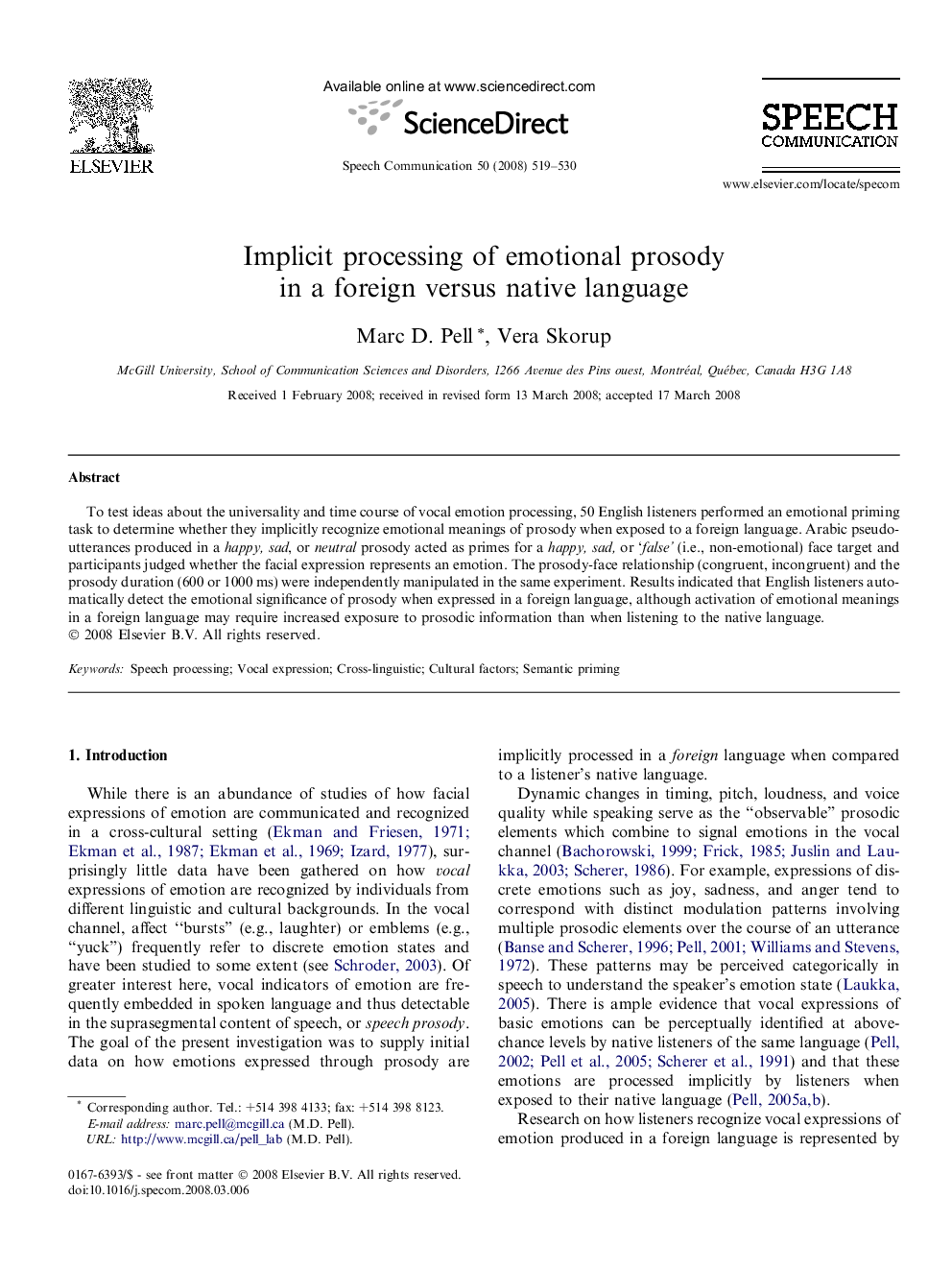| Article ID | Journal | Published Year | Pages | File Type |
|---|---|---|---|---|
| 565493 | Speech Communication | 2008 | 12 Pages |
To test ideas about the universality and time course of vocal emotion processing, 50 English listeners performed an emotional priming task to determine whether they implicitly recognize emotional meanings of prosody when exposed to a foreign language. Arabic pseudo-utterances produced in a happy, sad, or neutral prosody acted as primes for a happy, sad, or ‘false’ (i.e., non-emotional) face target and participants judged whether the facial expression represents an emotion. The prosody-face relationship (congruent, incongruent) and the prosody duration (600 or 1000 ms) were independently manipulated in the same experiment. Results indicated that English listeners automatically detect the emotional significance of prosody when expressed in a foreign language, although activation of emotional meanings in a foreign language may require increased exposure to prosodic information than when listening to the native language.
